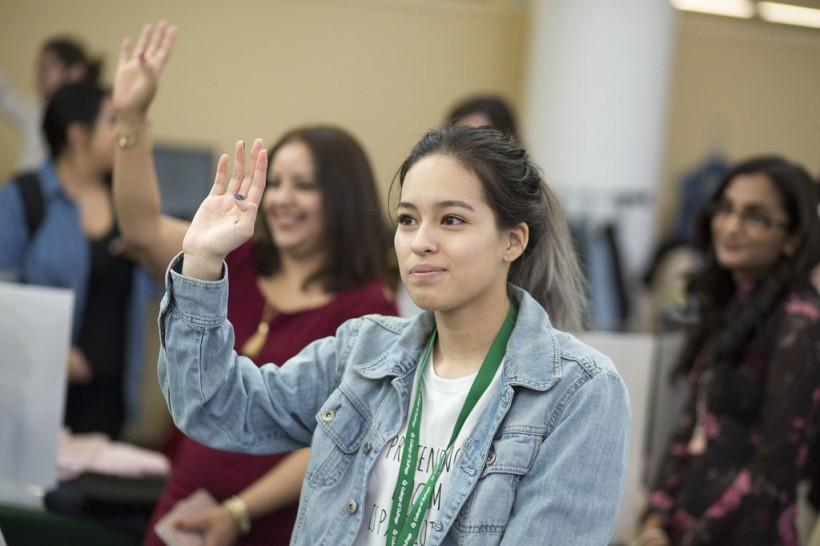When Ross Simmonds wrote an opinion piece for Entrevestor this month, he called for data on inclusivity in the Atlantic Canada startup community – a demand we’re now trying to meet.
An examination of the Entrevestor Databank indicates that Black and Indigenous communities from Atlantic Canada are under-represented in the region’s startup sector. I say “indicates” because we haven’t canvassed founders or CEOs on their ethnic roots so we may have missed some founders, and the matter is more complicated than it first appears.
Our study of 554 startups in the region shows that 0.7 percent of the companies have Black Co-Founders or CEOs who were born and raised in Canada, and 1.6 percent have Indigenous Co-Founders or CEOs. This shows an underrepresentation as people identifying as Black account for about 1.4 percent of the Atlantic Canadian population, and Indigenous people for about 5.5 percent, according to Statistics Canada.
The research also found that visible minorities who have immigrated to Atlantic Canada make up a far larger proportion – about 13.4 percent of the startup community. Comparable data for immigrants as a percentage of the overall population was unavailable.
Should we distinguish between the minority founders and CEOs who are immigrants as opposed to those born here?
I believe we should for the purposes of this exercise.
As Simmonds said in his Entrevestor post: “We need to look at data with specifics with regards to race and look for information on what communities are underserved, underrepresented, underfunded and ultimately missing out on the tech explosion – aka, this generation’s industrial revolution.”
I added the italics to emphasize the need to identify the communities that are missing the opportunities offered by innovation-driven entrepreneurship. Our research suggests those communities are the African-Canadian and Indigenous communities in the region.
More Views on Inclusion in #Startupeast:
Al-Otumi: Broadening our Entrepreneurial Circles
McCann: Startup Ecosystem Needs More Inclusion
Milton: Have You Heard of Michael Duck?
I also broached the subject with Leeno Karumanchery, Co-Founder and Chief Diversity Officer of the New Brunswick startup MESH/diversity, and an internationally recognized expert on diversity and inclusion. He believes it makes sense that Atlantic Canada has more innovation-driven entrepreneurs who are immigrants than those who were raised here in Black or Indigenous communities.
He said anyone taking the ambitious step of starting a company asks four basic questions: Do I really want to do it? Can I do it? Will I do it? And will the ecosystem support me?
“If you’ve grown up Black, never seeing a Black entrepreneur, and you’ve never seen the evidence of people like you getting to places, that last box is not so easy to tick,” said Karumanchery. “When you come here as an immigrant, with a desire to live in a new place and do new things, it makes sense that you’re ready to take these things on.”
In examining the participation of minority groups in the startup community, I stripped out all companies more than a decade old, and new companies I was unfamiliar with. That left a core of 554 companies. I found that four had a black founder and/or CEO. We counted nine Indigenous-led companies. Most of these are in New Brunswick, where the Joint Economic Development Initiative, or JEDI, has programs dedicated to helping First Nations entrepreneurs.
There is, of course, the possibility that I missed some innovation-driven companies with Black or Indigenous founders or CEOs. I would love to hear from anyone who believes I’m under-estimating Black and Indigenous participation in the startup community. But, even if I’ve missed a few companies, the percentages of Black and Indigenous founders would still be lower than their proportion of the overall population.
We found that 74 of these 554 companies were led by People of Colour from Africa, Asia or the Middle East, suggesting that the Atlantic Canadian startup community may be doing a better job of supporting immigrant entrepreneurs.
Some – including Simmonds – have asked about funding for Black and Indigenous entrepreneurs but it seems the first step would be to address the pipeline. Here’s one suggestion: Maybe we need programs focused on Black and Indigenous communities similar to the Spark competition that Innovacorp launched several years ago, in which idea-stage companies receive capital, mentorship, and support to assess product-market fit.
Editor's Note: We've adjusted the tallies for Indigenous-run companies since we first posted this item. We've increased the number from six to nine as there are some companies in Cape Breton that we originally overlooked.










